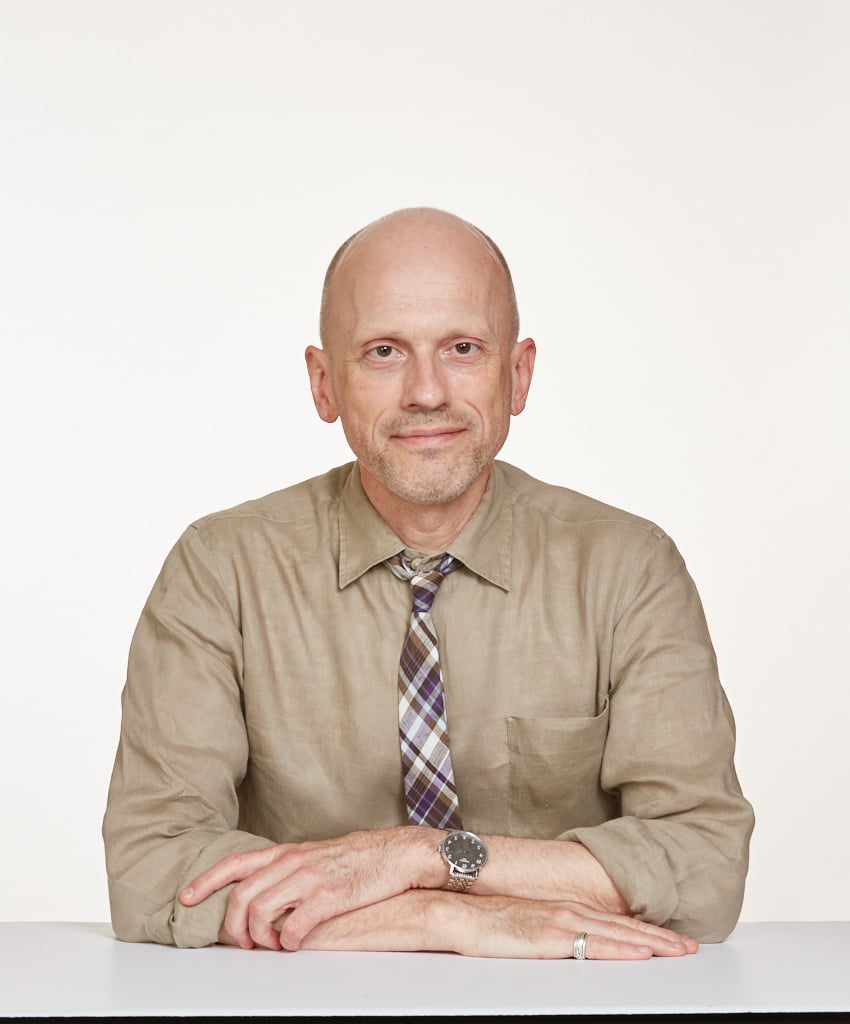Lights flashed, hands were all over me, and I was hoisted onto a stretcher. The last thing I remembered—as “memory” itself haltingly reformed—was leaving work, walking my bike across L Street, and turning onto the bicycle lane. But that’s all that’s come back to this day, a year later.
Most people assume it was a collision. It could have been: Bicyclists whiz by without calling out, “On your left!” Rush-hour car traffic around 19th and L is aggressive—and inches away. But there was no police report, no evidence any vehicle was involved.
Friends kept asking if I’d found out what caused the accident—which, because I was wearing a helmet, only broke my elbow, knocked out two teeth, cut up my face, and detached a retina. My standard reply became “No, and I’m not sure I need to. What I imagine might have happened is bad enough.” Privately, I decided that a cyclist sped past, close enough to knock me off balance. But the questions haunted me.
I’d been told GW hospital’s records office could provide emergency-services and doctors’ reports from that February night. I wasn’t convinced that seeing the trauma described in black and white would do me good, even if it solved a puzzle, so I procrastinated. But several weeks later, my sister-in-law was driving me back from the doctor and encouraged me to seek out answers, if only to help me move on.
So we swung by the hospital, and a short time later I was reading the EMS account: “Patient fell off his bicycle, striking his face on the ground. Does not remember falling and states he does not even ride a bicycle. . . .” And the physician record: “Patient presents with major trauma and bicycle accident. . . . Fell off, hit his head with facial injuries, amnesia of events.”
Fell off. That was all.
I found out I could request the 911 calls. As soon as an e-mail arrived containing two audio files, I realized I couldn’t listen: Strangers describing me bloody and motionless? No, thanks. But my partner did. He told me one call was from a hotel clerk saying pedestrians were reporting someone had fallen from his bike out front. Another was from a driver who saw me on the ground.
As I related this non-news to my brother—who’d been the first to arrive at the ER—he reminded me that when he retrieved the bike, the chain was jammed between the frame and the gear teeth. When he’d mentioned this months before, I’d assumed it had come off track as a result of the crash. Now my brother, a biker himself, said the chain was stuck so tight that it probably came loose first and I pedaled it into its jam—and went down with it.
So, a mechanical failure? A likely scenario anyway.
Still, I’m spooked by the amnesia. Would I rather remember the tumble of flesh, bone, and metal on pavement? No—my protective lapse is a blessing in that regard. The truth is I feel compassion for the guy lying tangled on the ground, and my memory blank gives me the strange sensation of having abandoned him that night.
A year later, after two surgeries, months of physical therapy, and dozens of doctors’ appointments, my elbow and face have healed, I have new teeth, and my eyesight is almost what it was. I no longer bicycle to work—illogically or not, it feels like tempting fate—but last summer I took a rental bike for miles-long rides on an open trail. I was surprised by the outcome: It was a kind of balm. On those sun-warmed days, my body finally began to shoulder the mystery, to balance the weights of what I’ll never know and what I can’t forget.
William O’Sullivan is the senior managing editor of Washingtonian. This article appears in the February 2015 issue.




















